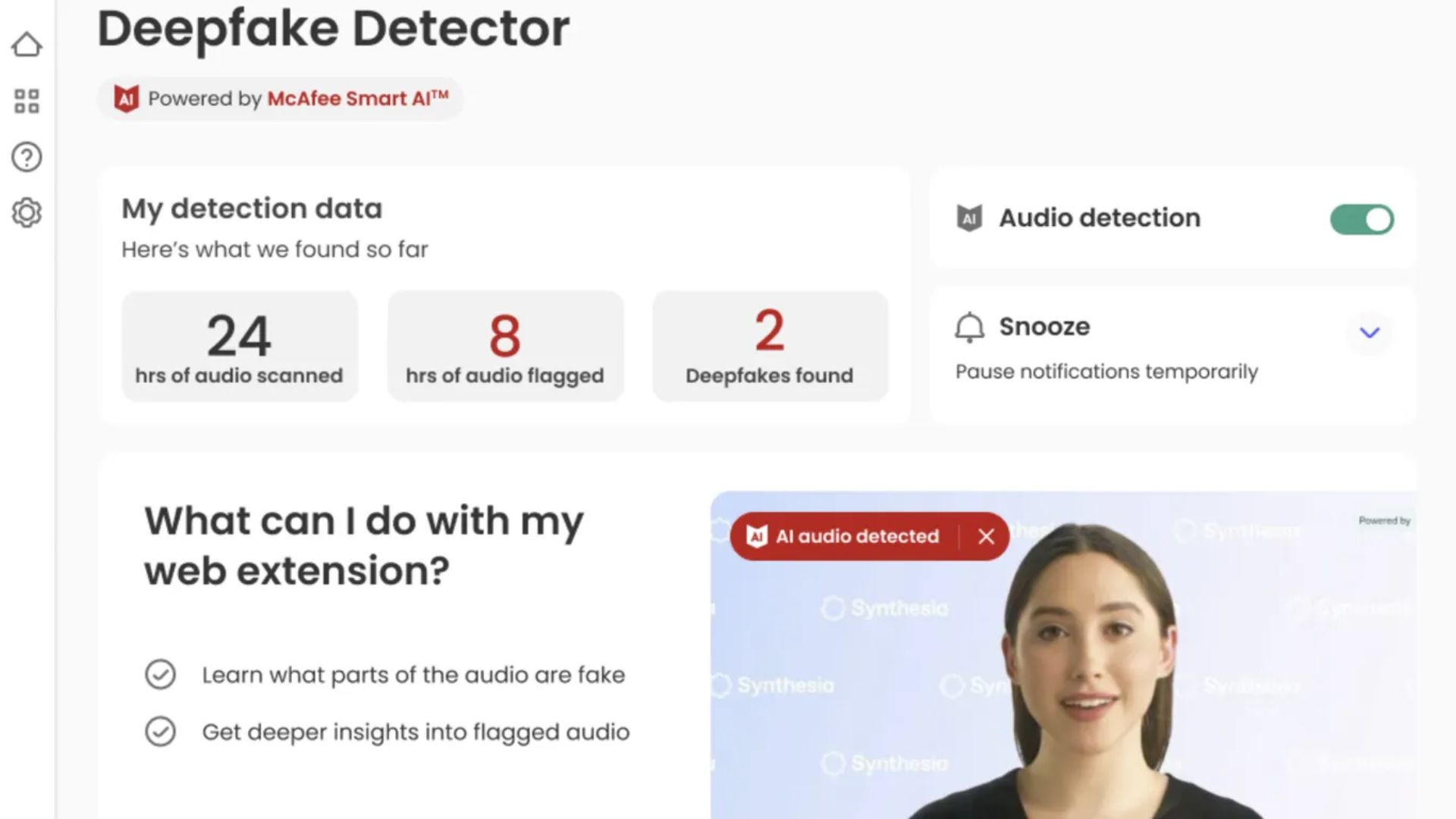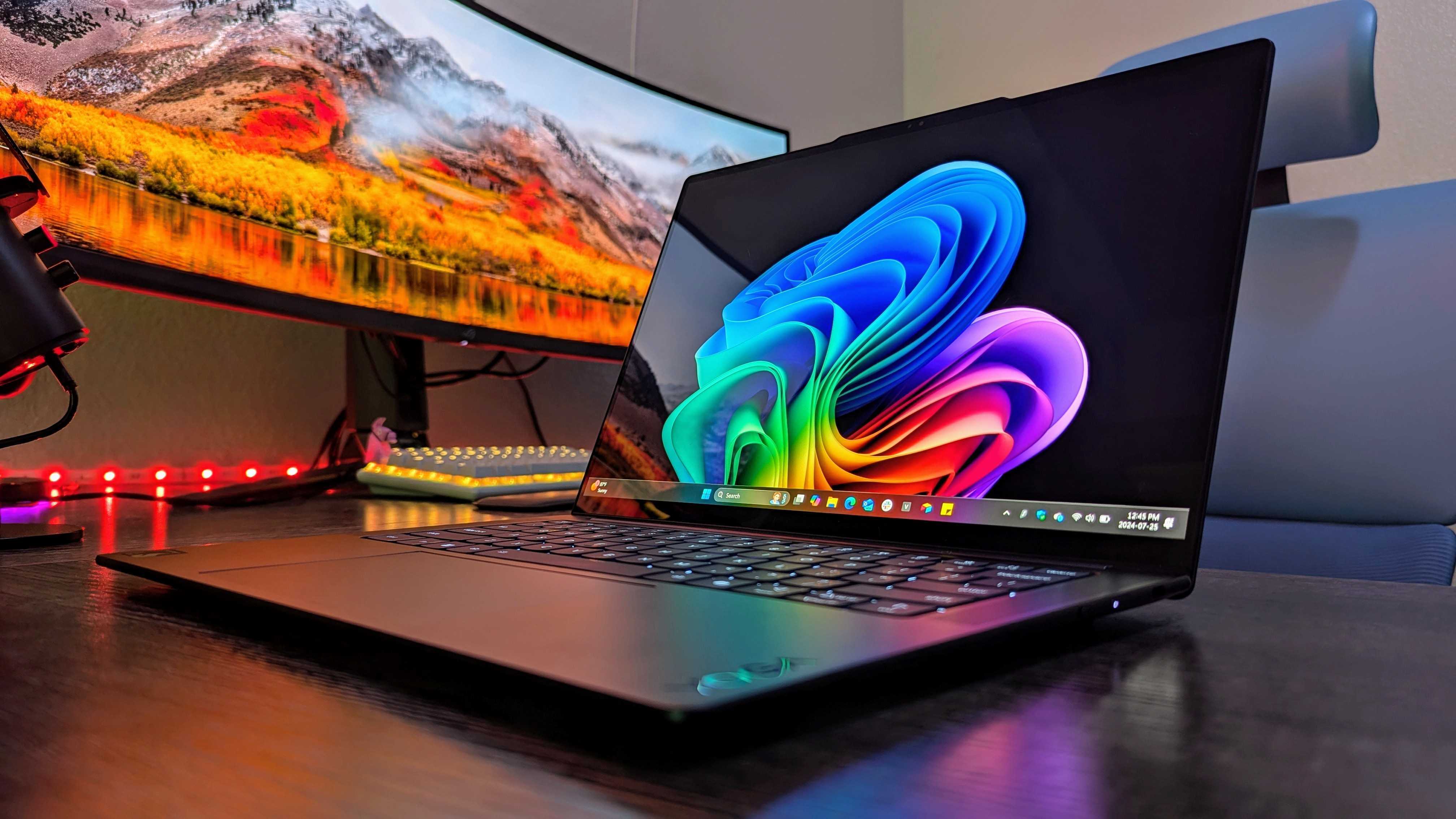McAfee debuts 'the world's first automatic' Deepfake Detector exclusively to select Lenovo AI PCs: "No more wondering, is this Warren Buffet investment scheme legitimate"
McAfee partners with Lenovo to launch a Deepfake Detector tool to keep phishing scams at bay.

What you need to know
- McAfee recently unveiled an AI-powered Deepfake Detector to help users identify deepfakes and AI scams deployed by threat actors.
- The tool is featured exclusively in select Lenovo AI PCs for English language detection across the US, UK, and Australia.
- It runs on-device by leveraging the dedicated NPU's capabilities to keep the user's data safe and private without compromising speed or battery life.
- Users buying Lenovo's flagship AI PCs will get a 30-day free trial of the Deepfake Detector
You might know McAfee for its cybersecurity and online protection services, which are designed to help users protect their identities while managing their social media privacy settings. The company recently unveiled its AI-powered Deepfake Detector, shipping exclusively to Lenovo's Copilot+ PCs with dedicated neural processing units (NPUs) to help users identify AI scams and deepfakes.
With the rapid adoption of generative AI, it's increasingly becoming harder to tell what's real. AI-powered tools like Microsoft's Image Creator from Designer (powered by OpenAI's DALL-E 3 technology) can generate sophisticated structural designers, potentially rendering architects and interior designers jobless. However, the tools seemingly fail to accomplish simple tasks such as creating a plain white image.
McAfee's AI-powered detection tool will help mitigate the prevalent issues, including scams and misinformation, that stem from the broad adoption of AI. The company is also debuting a Smart AI Hub packed with resources and interactive elements, to help users build more awareness about deepfakes and AI scams.
According to McAfee's Senior Vice President of Product, Roma Majumder:
“Knowledge is power, and this has never been truer than in the AI-driven world we’re living in today. No more wondering, is this Warren Buffet investment scheme legitimate, does Taylor Swift really want to give away cookware to fans, or did a politician actually say these words? The answers are provided to you automatically and within seconds with McAfee Deepfake Detector.”
Why you need to be able to identify AI-generated deepfakes
As more professionals adopt generative AI into their workflows, threat actors and hackers have joined the fray, too. Late last year, Microsoft published a new study revealing that hackers are warming up to AI and using the technology to deploy their attacks, making them more sophisticated and harder to identify.
McAfee's Deepfake Detector has been trained on over 200,000 samples. It will leverage the NPUs in Lenovo AI PCs to conduct the identification process directly from the PC, rather than depending on the cloud. This will help maintain the user's privacy without compromising speed, a prevalent issue preventing AI from advancing. "McAfee does not collect or record a user’s audio in any way, and the user is always in control and can turn audio detection on or off as desired," added the company.
All the latest news, reviews, and guides for Windows and Xbox diehards.
McAfee's Deepfake Detector runs on-device like Microsoft's new AI features that just shipped to Windows 11 as part of the 24H2 release exclusively to Copilot+ PCs. This allows the tool to process the data faster while maintaining privacy. It also improves your device's battery life.
The tool shipped to broad availability on August 21, 2024, in the US, UK, and Australia for English language detection in select new Lenovo AI PCs. It's also worth noting that customers who buy Lenovo's new AI PCs will get a free 30-day trial of McAfee Deepfake Detector, with US pricing starting at $9.99 for the first year.
🎒The best Back to School deals📝
- 🕹️Xbox Game Pass Ultimate (3-months) | $32.39 at CDKeys (Save $18!)
- 💻HP Victus 15.6 Laptop (RTX 4050) | $599 at Walmart (Save $380!)
- 📺Amazon Fire TV Xbox Game Pass bundle | $82.85 at Amazon (Save $37!)
- 💻Lenovo ThinkPad X1 Carbon | $1,481.48 at Lenovo (Save $1,368!)
- 🎧Bose QuietComfort ANC Headphones| $249.00 at Best Buy (Save $100!)
- 💻HP OmniBook X 14 (X Elite) | $899.99 at Best Buy (Save $300!)
- 📺TCL Class Q6 4K QLED TV (55-inches) | $319.99 at Target (Save $130!)
- 🎮 Seagate Xbox Series X|S Card (2TB) | $249.99 at Best Buy (Save $110!)
- 🕹️Hi-Fi RUSH (PC, Steam) | $9.39 at CDKeys (Save $21!)
- 🖱️Razer Basilisk V3 Wired Mouse | $48.99 at Best Buy (Save $21!)
- 🖥️Lenovo ThinkStation P3 (Core i5 vPro) | $879.00 at Lenovo (Save $880!)

Kevin Okemwa is a seasoned tech journalist based in Nairobi, Kenya with lots of experience covering the latest trends and developments in the industry at Windows Central. With a passion for innovation and a keen eye for detail, he has written for leading publications such as OnMSFT, MakeUseOf, and Windows Report, providing insightful analysis and breaking news on everything revolving around the Microsoft ecosystem. While AFK and not busy following the ever-emerging trends in tech, you can find him exploring the world or listening to music.

